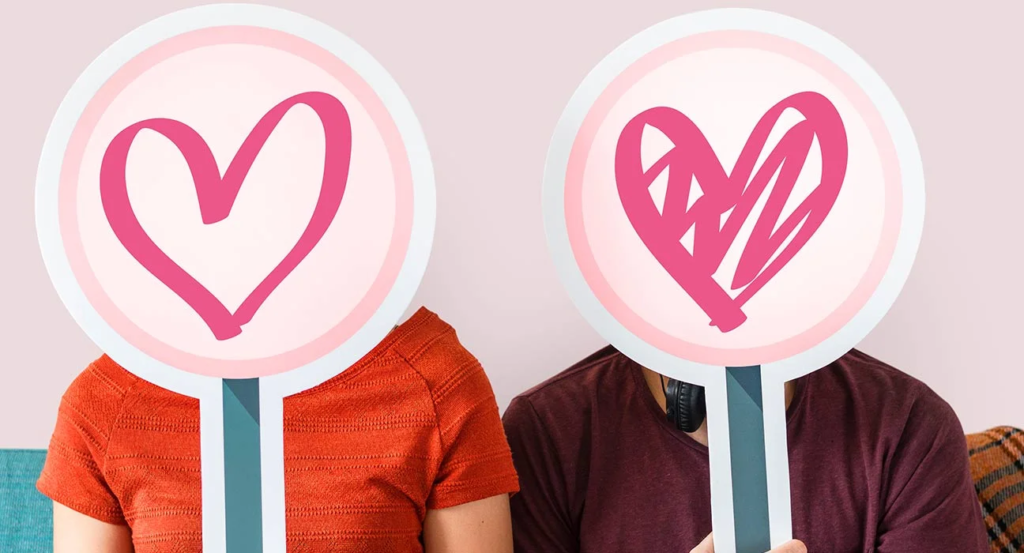How do you tell, We question things that we see, feel, or experience in various aspects of life. This might be by understanding the relationship, interpretation of body language, honesty understanding, and even your feelings. The difference between making decisions and gaining self-understanding lies in how one learns to “tell” or decode these signs. In this article, we shall consider some essential issues in how to “tell” others, your relations, and even your own self.
How can you tell if someone likes you?
Most often asked by people, especially at the initial stages of a date or friendship, is whether the other person likes them. Here are some signs that may indicate interest in you:
Body Language: The body language of the guy who likes you often points towards you. He faces you and looks at you for longer periods of time or subtly finds a way to touch you through gestures like a pat on your arm. Mirroring all your gestures is also a good sign.
Talking: If they continuously start a conversation, ask questions about your life, and remember details you share, then they are likely interested. People who like you pay attention, care, and are interested in you.
Frequent Communication: If someone is texting you often, even just to say hello or share something funny, that’s a very good sign of interest. Being top of mind and reaching out to them is an important sign that you are important to them.
Prioritizing time together: If someone is always ready to meet with you or rearranges their schedule for you, that reflects they would like to have your presence around. That effort alone speaks volumes of interest.
While these signs may indicate romantic or friendly interest, remember individual behavior varies. Some people are naturally attentive or contact oriented, so context becomes important in the correct understanding of these symptoms.
How do you know someone is honest?
Finding honesty forms the foundation upon which the trust between the parties should be based, whether you are looking for friends, colleagues, or a business partner. Honesty does not just seem to reside in what they say but is also loud and clear the way that they say it. Let’s look into this below:
Consistency in stories: If anybody’s story always changes the moment they speak about any kind of event, then it is a red flag. Honest people usually remember their details consistently, whereas a liar may change his tale to impress different listeners.
Eye contact: True persons generally keep natural eye contact though not foolproof evidence. Some individuals look away in nervousness rather than out of guilt, so be aware of this along with other behavior patterns.
Information in the explanation: Honest individuals are much more detailed as they have nothing to conceal. Vague or extremely vague answers may suggest that the individual is not candid enough.
Body Language and Voice: If the person starts crossing their arms, or their voice changes suddenly or they fidget nervously, this may mean they are uncomfortable with what they are saying. Pay attention to inconsistencies between the verbal and non-verbal answers.
How do you know if a relationship is right for you?
Determining the quality of a relationship is not an easy thing. Here are the signs of a healthy relationship:
Mutual respect and trust: A relationship where both partners value each other’s perspectives, boundaries, and individuality is more likely to succeed. If there is trust, you will feel safe, not worried about dishonesty or betrayal How do you tell.
Clear Communication: Good relations involve open, honest communication. If you can express your feelings, have healthy conflict resolution, and address your needs without fear of persecution, then you’re likely in a good relationship.
Support for personal growth: Relations should foster each individual’s growth. If you find that you are encouraged towards goal achievement and are free to be yourself, it’s a good indication of a healthy relationship.
The balance of give and take: If a couple contributes equally to both emotional and financial support otherwise, this is a plus. If one is mostly giving and compromising in their relationship, it is usually poisonous.
Evaluate your feelings also. If you really love the idea of being in the relationship and are truly feeling happy and fulfilled, chances are, it is what you want.

How do you know that someone is emotionally unavailable?
How do you tell, Emotional availability is how well one connects and opens himself or herself up to other people. This is when you save yourself from those relationships that do not even meet your expectations.
Inconsistency in communication: One of the reasons emotionally unavailable people are like this is because they sometimes get too close and distant the very next moment. This indicates that they have problems with commitment.
Difficulty with openness: If a person gets afraid of personal contact or when things get serious, she is protecting herself from coming too close.
Independence first and intimacy second: Whereas independence is important, in emotionally unavailable people, excessive protection of personal time deters them from deepening an attachment.
Lack of empathy: Those people who are emotionally unavailable cannot empathize with other people’s feelings and won’t be able to share in them. If they do not respond to your feelings or will not discuss them, it is a red flag.
Being able to identify early can save you from investing yourself in somebody who may not be able to deliver what you need in the relationship How do you tell.
How do you say what you want out of life?
Given this, it is indeed intimidating to find out exactly what you want in your life with all these options. Here are a few ways to gain some clarity How do you tell:
Self-Reflection and Mindfulness: Use this time to journal or meditate on your values and desires. Writing down the things that make you fulfilled can help illuminate what it is you want in your life.
Your inherent talents as well as that of things you love guide you toward something meaningful. Try to conduct some experiments in order to determine that.
Small Goals: The whole procedure of breaking down such huge aspiration into smaller achievable goals can help build the confidence level in you. This creates an open path for achieving your ultimate vision.
Learn from the experience: Reflect on what was happening at the time that made the experience so satisfying or unfulfilling to you. You will learn patterns of happiness and purpose.
Life’s lessons are like an invisible compass, sometimes leading you to exactly where you want to be in life.
Finding direction in life is an evolutionary process and your priorities may shift several times over the years, so periodically checking in with yourself is a great way to ensure you stay connected to what you truly desire in life.
How will you know you’re doing the right thing?
How do you tell, It can be intimidating, more so if the stakes involve careers, relationships, or path of life. Here’s how to know if you’re in the right:
Trust your gut. Gut feelings often involve unconscious wisdom combining past experience, values, and desire. If something doesn’t feel right, give it some time to figure why How do you tell.
Pros and cons: A pros and cons list can clearly be presented, especially with complex decisions. This will allow you to objectively weigh the possible outcomes.
Outcome visualization: Imagine yourself after making the decision. Does it leave you feeling relieved, happy, and excited, or anxious and uncertain? Often, concepts reveal how we really feel.
Ask for input, but trust yourself. Your friends or mentors will be able to give you some good perspective, but only you know what is best for your happiness and well-being.
Read More: Funny Female Dating Profile Examples to Make You Laugh and Swipe Right
Final words
How do you tell, Learning to “listen” in different aspects of life-from reading the emotions and intentions of others to knowing your own goals and desires-is a great skill to have. It allows you to connect with others at a more meaningful level, makes you more aware of your choices, and allows you to live according to your values. These insights will develop in practice and self-reflection. But the fruit is usually a more authentic relationship, a much greater degree of self-confidence, and a clearer sense of your path. The next time you wonder how to know, remember that the answers often lie right before your face-you just have to pay attention and trust yourself.






